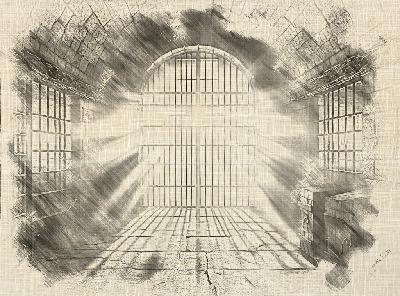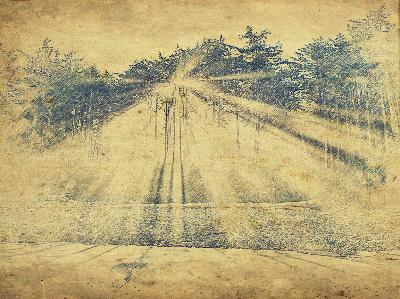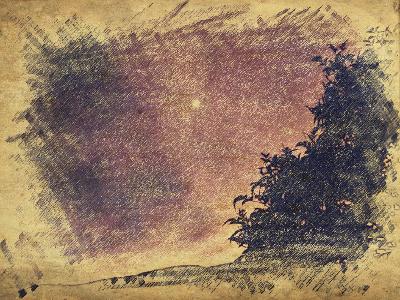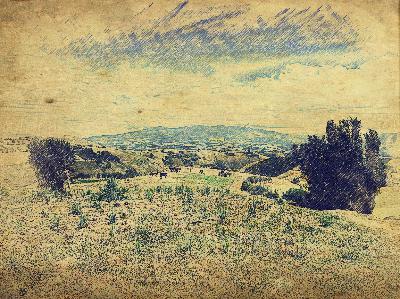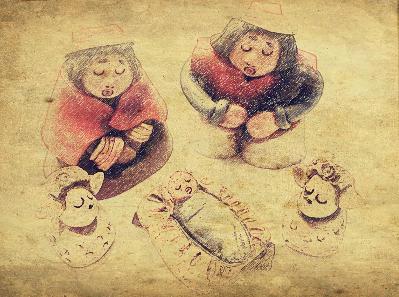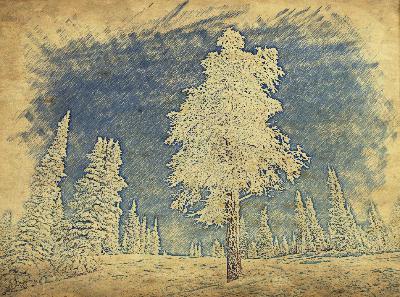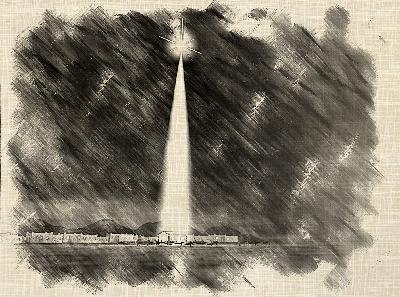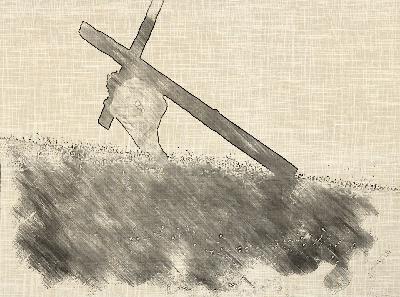Faith: Not Doubt-Free, But Doubt-Defying.
Description
In the hushed sanctuaries of our hearts, where the whispers of divine mystery echo through the corridors of time, we find ourselves drawn to the timeless beauty of “The Angel Gabriel From Heaven Came.” This beloved Christmas hymn, penned by the erudite Sabine Baring-Gould, invites us to pause and ponder the ineffable moment when heaven touched earth, and the eternal Word became flesh.
As we delve into the depths of this hymn, let us first consider the majestic figure of Gabriel, that celestial messenger whose very name means “God is my strength.” In the sacred scriptures, Gabriel stands as a harbinger of divine revelation, a bridge between the ineffable realms of the Divine and the finite understanding of humanity. The hymn paints him with vivid, almost tactile imagery:
“The Angel Gabriel from heaven came,
his wings as drifted snow, his eyes as flame;”
Here, Baring-Gould masterfully juxtaposes the ethereal purity of snow with the consuming intensity of flame, a metaphorical representation of the dual nature of divine messengers – comforting yet awe-inspiring, gentle yet powerful. This imagery calls to mind the prophet Daniel’s encounter with Gabriel, where he fell prostrate, overcome by the angel’s presence (Daniel 8:17 ). How often do we, in our modern sensibilities, domesticate the divine, forgetting the trembling awe that true encounters with the holy should evoke?
As we contemplate Gabriel’s appearance to Mary, we must pause to consider the profound theological implications of this moment. The Annunciation, as it has come to be known, is not merely a quaint nativity scene detail, but the pivotal moment in salvation history. It is here, in the humble dwelling of a young Jewish girl, that the eternal purposes of God, hidden from the foundation of the world, begin to unfold in time and space.
Baring-Gould captures the gravity of this moment in the second stanza:
“‘For known a blessèd Mother thou shalt be,
all generations laud and honour thee,
thy son shall be Emmanuel, by seers foretold;
most highly favoured lady.'”
These words echo the prophetic utterances of Isaiah, who centuries earlier proclaimed, “Therefore the Lord himself will give you a sign: The virgin will conceive and give birth to a son, and will call him Immanuel” (Isaiah 7:14 ). In Mary’s womb, the hopes and fears of all the years were met, the long-awaited Messiah taking on human flesh.
Yet, as we bask in the radiance of this divine encounter, we must not overlook the profound human element of this story. Mary, young and likely bewildered, stands at the crossroads of history. Her response, captured in the third stanza, reveals a depth of faith that should both inspire and challenge us:
“Then gentle Mary meekly bowed her head,
‘To me be as it pleaseth God,’ she said,
‘My soul shall laud and magnify his holy name’:”
In these simple words, we witness a surrender so complete, so trusting, that it becomes a template for all who would follow Christ. Mary’s fiat, her “yes” to God, stands in stark contrast to the disobedience of Eve in the Garden. Where Eve reached for forbidden fruit in an attempt to become like God, Mary humbly accepts the will of God, becoming the vessel through which God would become man.
But let us pause here, dear friends, and consider a figure often relegated to the shadows of the Nativity narrative – Joseph, the earthly father of Jesus. While Baring-Gould’s hymn focuses on the angelic visitation to Mary, we must remember that Joseph’s journey of faith was no less profound, and perhaps even more challenging.
Unlike Mary, Joseph did not have the benefit of a physical angelic visitation. His encounter with the divine plan came in the form of a dream, a more subtle and easily dismissed medium of revelation. Matthew’s gospel tells us, “But after he had considered this, an angel of the Lord appeared to him in a dream and said, ‘Joseph son of David, do not be afraid to take Mary home as your wife, because what is conceived in her is from the Holy Spirit'” (Matthew 1:20 ).
Consider for a moment the turmoil that must have gripped Joseph’s heart. His betrothed, whom he loved and trusted, was with child – a child that was not his. In a culture where such a situation could result in public shame and even death, Joseph’s initial plan to divorce Mary quietly speaks volumes about his character. Yet, when confronted with the divine reality in a dream, Joseph chose to believe, to trust, to step into a narrative far greater than he could have imagined.
This, beloved, is where we encounter a profound truth about faith – a truth often obscured by our sanitized retellings of these sacred stories. Faith, true and transformative faith, is not the absence of doubt, but the courage to trust in the face of uncertainty. It is the willingness to step into the unknown, guided by the flickering light of divine promise.
Joseph’s faith, like Mary’s, was not a blind acceptance of the impossible, but a courageous embrace of the divine paradox. He chose to believe that the God who had led his ancestors through the wilderness, who had spoken through the prophets, was now working in ways beyond human comprehension. His faith was not doubt-free, but doubt-defying.
How often do we, in our spiritual journeys, demand the clarity of a physical angelic visitation? How frequently do we discount the subtle whispers of God in our hearts, the gentle nudges of the Spirit, because they lack the dramatic flair we associate with divine intervention? Joseph’s story challenges us to attune our hearts to the quieter frequencies of God’s voice, to trust even when the path ahead seems shrouded in uncertainty.
As we return to Baring-Gould’s hymn, we find in its final stanza a beautiful summation of the fruit of this faith:
“Of her, Emmanuel, the Christ was born
in Bethlehem, all on a Christmas morn,
and Christian folk throughout the world will ever say
‘Most highly favoured lady.'”
Here, we see the culmination of Mary’s obedience and Joseph’s trust – the birth of Emmanuel, God with us. In a humble stable in Bethlehem, the eternal Word became flesh, entering into the messy, beautiful tapestry of human existence. This child, born of Mary’s faith and cradled in Joseph’s trust, would grow to be the Savior of the world, the bridge between humanity and divinity.
But let us not rush too quickly to the manger, dear ones. Let us linger for a moment in the tension of the months leading up to that first Christmas. Imagine Mary, her body swelling with the promise of God, facing the whispers and stares of her community. Picture Joseph, working with calloused hands to prepare a home for a family he never expected, wrestling with doubts in the quiet hours of the night. Their journey of faith was not a straight path illuminated by constant divine affirmation, but a winding road through the valley of human experience, lit by the flickering flame of trust.
In this, we find a mirror for our own spiritual pilgrimages. How often do we, like Mary, say “yes” to God’s call, only to find ourselves navigating uncharted waters of uncertainty? How frequently do we, like Joseph, choose to believe in the face of circumstances that defy human logic? The Christmas story, stripped of its tinsel and sentimentality, presents us with a profound challenge – will we trust God even when His plans upend our expectations and rewrite the narratives we’ve crafted for our lives?
Baring-Gould’s hymn, with its focus on the angelic announcement and Mary’s response, provides a beautiful entry point into this reflection. But as we sing these familiar words, let us not forget the unsung heroes of faith – those like Joseph, who believed without seeing, who trusted without tangible proof. Their silent obedience, their steadfast faith in the face of doubt, forms the rich soil from which the flower of our salvation bloomed.
As we approach another Christmas season, perhaps we might pause to examine our own hearts. Where are the areas in our lives where God is calling us to trust beyond our understanding? What dreams and whispers of the divine are we dismissing because they don’t fit our preconceived notions of how God should work? The story of the Nativity, in all its beautiful complexity, invites us to expand our understanding of faith, to embrace a trust that transcends our need for certainty.
In the words of Baring-Gould’s hymn, we are reminded that Mary was “most highly favoured.” But let us remember that this favor was not without cost. It required a surrender of her plans, her reputation, her very self to the purposes of God. Joseph, too, though not mentioned in the hymn, was favored – chosen to be the earthly father of the Messiah. His favor, like Mary’s, came wrapped in the challenge of faith, the invitation to trust beyond reason.
As we sing “The Angel Gabriel From Heaven Came” this Christmas, let its familiar words become a mirror for our souls. Let us see in Mary’s obedience and Joseph’s trust a reflection of the faith to which we are called. May we, like them, learn to say “yes” to God’s plans, even when they defy our understanding. May we find the courage to trust in the face of doubt, to believe even when the only confirmation we have is the quiet whisper of God in the depths of our hearts.
For in this trust, in this courageous faith, we become part of the ongoing story of redemption. We, too, become bearers of Christ to our world – not in flesh, as Mary did, but in spirit and in truth. Our lives, shaped by this transformative faith, become living testimonies to the God who still speaks, who still calls, who still invites us into His grand narrative of salvation.
As we conclude our reflection on this beloved hymn,





